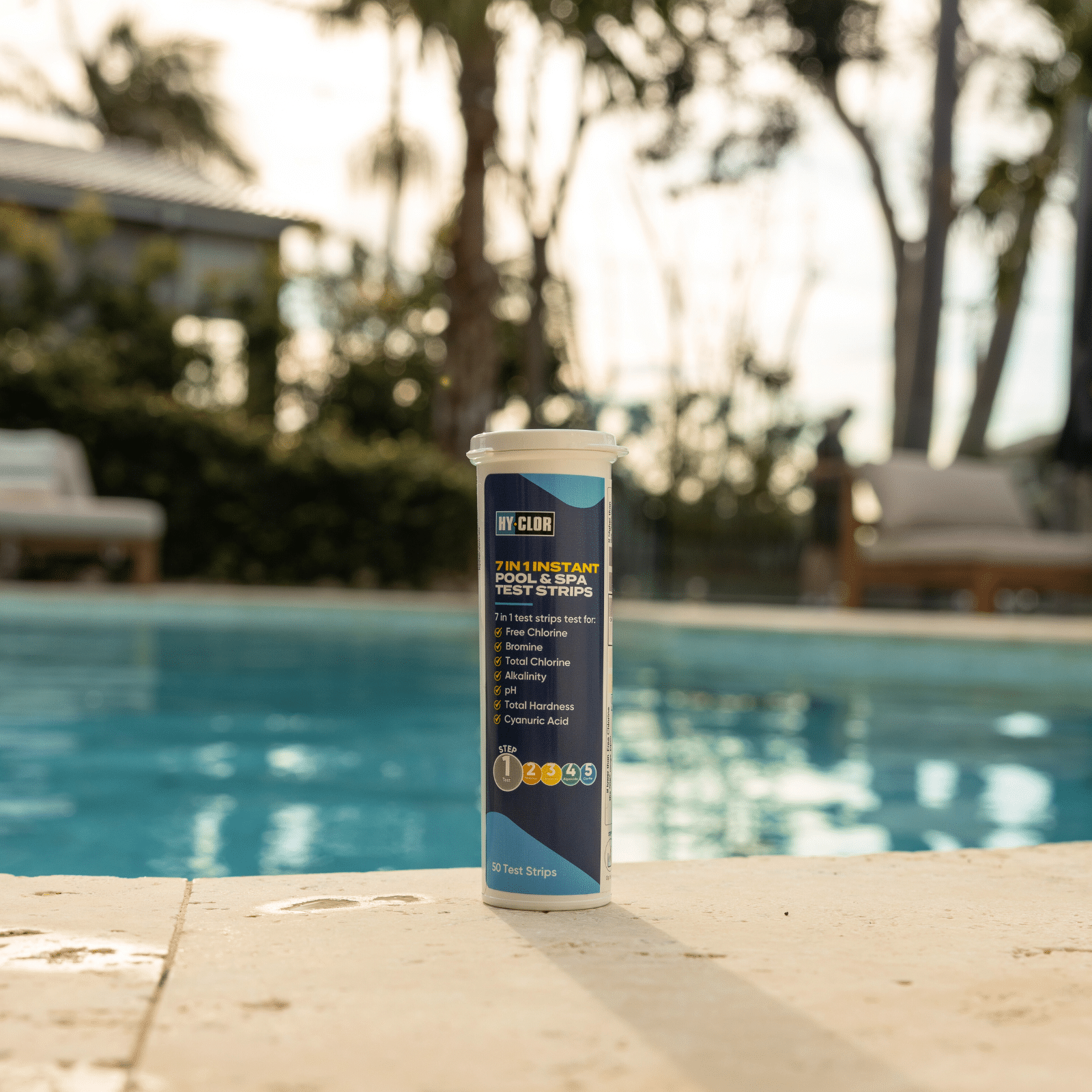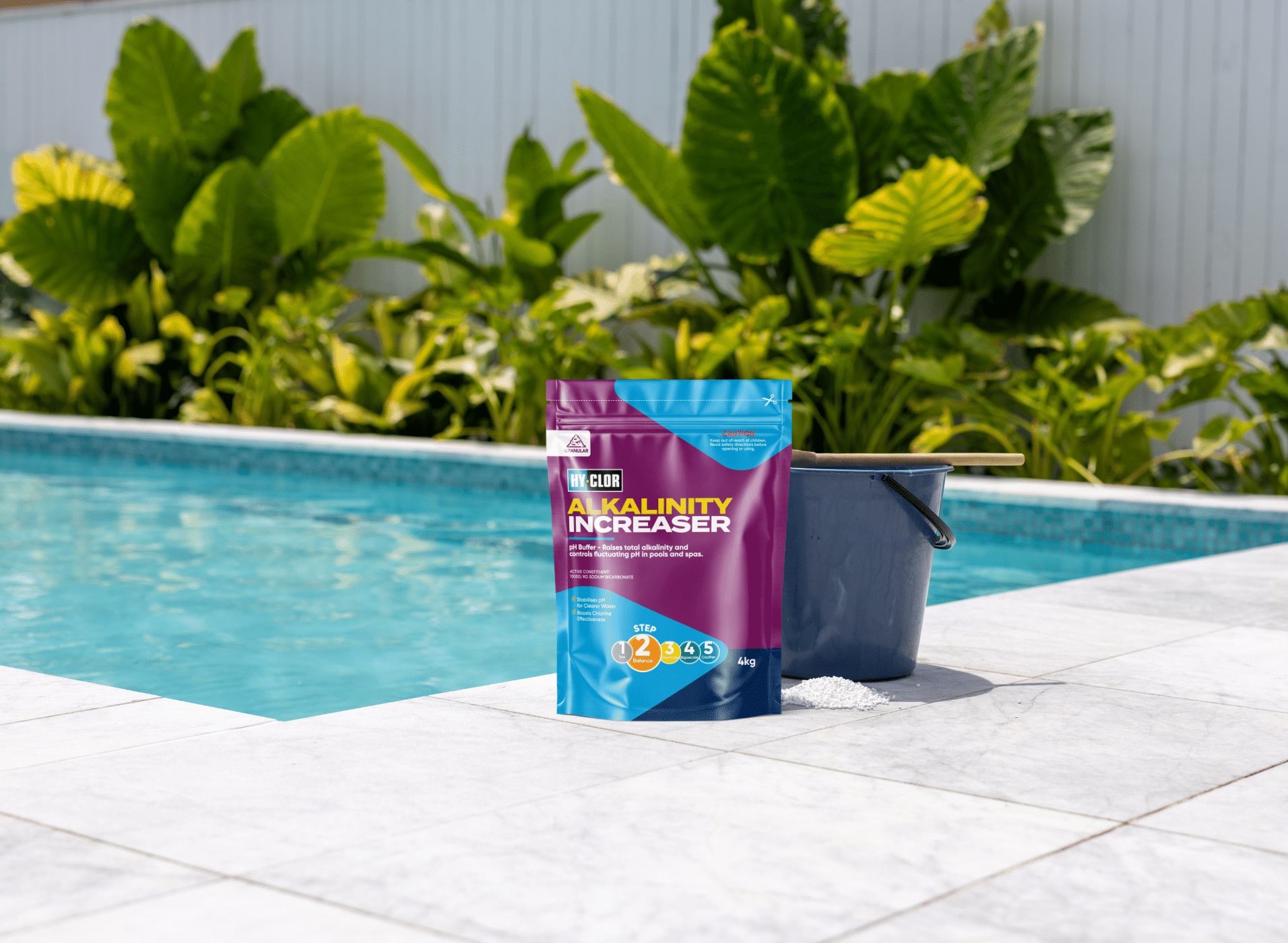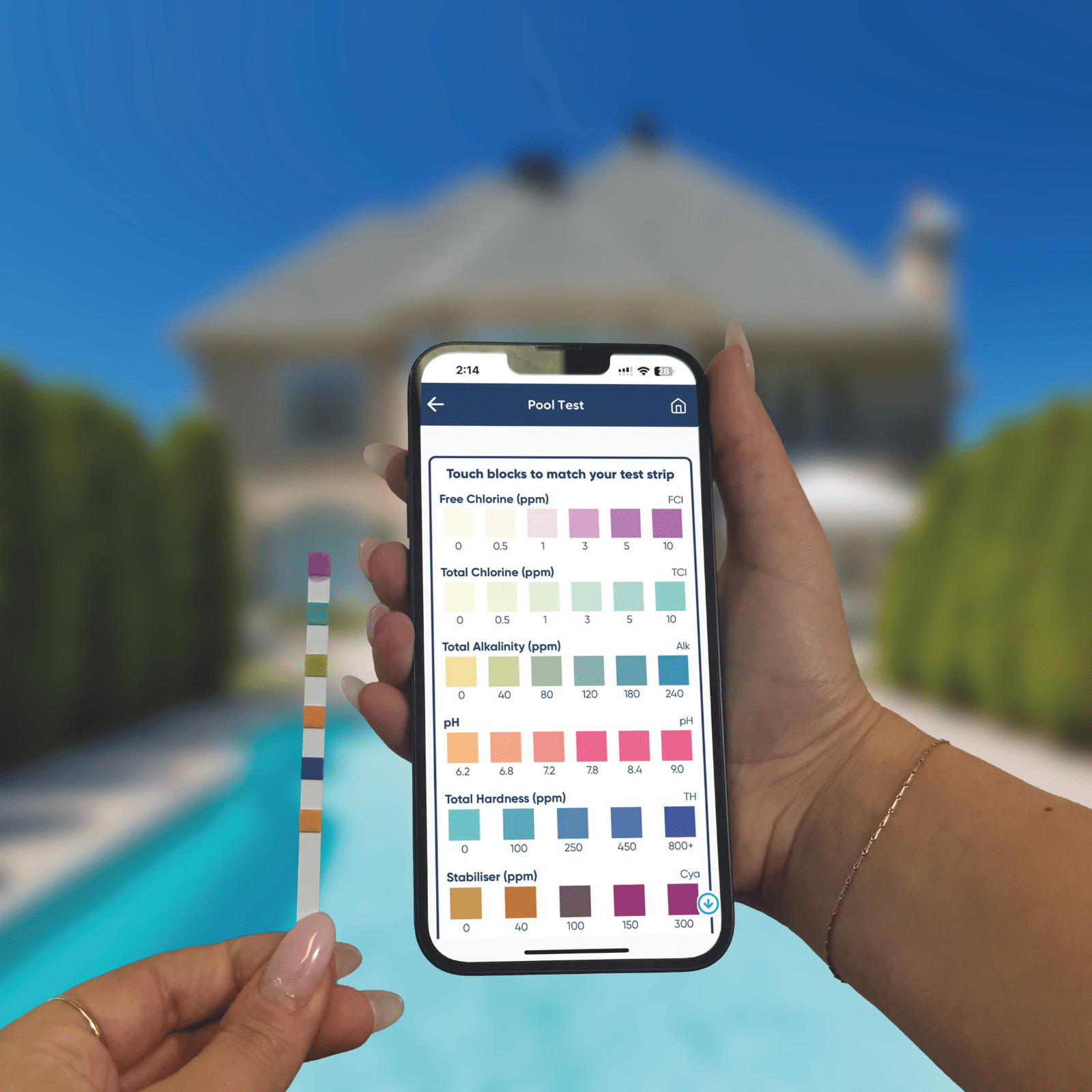 What is Alkalinity?
What is Alkalinity?
Alkalinity means the Total Alkalinity which is the total dissolved carbonates or bicarbonates present in the pool or spa’s water.
These are alkaline substances that have a pH of 8.0 or higher. Alkalinity can be measured by using a test strip and is measured in PPM (parts per million). The proper amount of alkalinity to have in your pool or spa is between 80-120ppm.
To test for Alkalinity refer to Hy-Clor’s 7 in 1 Instant Pool & Spa Test Strips or Hy-Clor’s 5 in 1 Instant Spa Test Strips.
Why is it so important?
The alkalinity level in your pool and spa is important as it acts as a buffer for the pH levels. pH levels can fluctuate very easily due to weather variables like rain, wind, heat etc. so by having the right alkalinity levels you can ensure that the pH level doesn’t change too much. Alkalinity sort of works like armour for the pH keeping the pool or spa water chemically stable. next page ar richard mille rm 07 01 ladies unknown rm 07 01 010 automatic handyhalterung auto check this wie erkennt man ob das iphone se der ersten oder zweiten generation ist his comment is here 20mg ek mini disposable vape device 600 puffs 000499 https://www.ultimatepuff.co.uk/product/20mg-ultimate-puff-salts-on-ice-10ml-flavoured-nic-salts-50vg-50pg-000746 i was reading this
What are the side effects of unbalanced Alkalinity?
Low Alkalinity
When the alkalinity levels fall below 80ppm it will result in the pool or spa water being too acidic which may cause the following:
- Fluctuations in pH levels
- Irritated eyes and skin
- Corrosion of surface and equipment
- Staining of pool surface
High Alkalinity
- Itchy eyes and skin
- Cloudy water
- Scaling of surface and equipment
How much do I add?
Most likely your pool test will tell you exactly how much to add, but a rule of thumb is if you add 1kg to a 50,000L pool, the alkalinity level will rise by 10ppm.
Now you know why alkalinity is added to your pool and spa. If you need some extra help, don’t hesitate to give us a call on 1800 625 123 for advice on what products are best suited to your pool needs.




